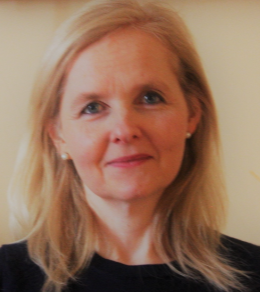Absent
With both countries preparing for a new academic year in September, many involved in the public education systems are asking, “where are the teachers?”
In Hungary, Tamas Totyik, deputy chairman of the Teachers’ Union, says around 17,000 teachers, or 15 per cent of the total needed, are missing from the education system nationwide. The shortage of maths, physics, chemistry and IT teachers is particularly acute, even in richer neighbourhods.
“Teachers are getting older and going to retire, and there is no one to fill the gap,” Totyik, who had taught maths and geography in rural Hungary for over 30 years, tells BIRN.
In Poland, staff shortages, especially in large cities, are also worryingly high. In Warsaw, for example, there are over 1,800 vacancies, according to the ZNP union, and in Krakow about 1,000.
At a press conference in mid-August, Education Minister Czarnek derided the concerns, saying the shortages were “normal turnaround of staff at this time of year” and claimed that the countrywide numbers equated to a situation where a school with a staff of 50 lacked one teacher.
Yet a monitoring of job vacancies announced by regional education authorities, compiled by English teacher Robert Gorniak and published on the Facebook page Dealerzy Wiedzy, showed at least 20,000 teachers were needed across the country in July, with bigger cities disproportionally affected.
“As a reminder, shortages last year amounted to 15,000 staff missing in August, which amounts to a 50 per cent rise,” Gorniak commented.
That same kind of doublespeak from the Polish authorities can be seen when it comes to increasing the salaries of teachers, which has been an ongoing demand for years, including during the 2019 strike.
Czarnek claimed ZNP, the union, had rejected an offer of salary increases for teachers of around 36 per cent (a claim ZNP vehemently denies), while at the same time the PiS-controlled Sejm, the lower house of parliament, rejected an increase of 20 per cent.
In Hungary, experts argue an immediate pay rise of at least 30-50 per cent would be needed to retain and attract new teachers to make up the shortages.
After 10 years of neglect, Orban’s right-wing government is now at least conceding that there are problems in the public education system and teachers are somewhat underpaid. It is now promising to raise salaries to 80 per cent of the country’s average wage by 2029. The money to fund this, around 1 billion euros, should come from the EU’s structural and cohesion funds, but government has to provide credible anti-corruption guarantees, just like it has to with the frozen payments from the coronavirus Recovery and Resilience Facility.
In any case, teacher Zsuzsa Berkesi thinks these are empty promises from the government and won’t solve the problems in the here and now: “When the new utility bills arrive this autumn, teachers will have to decide whether to pay those or eat. Literally, many will starve. We need an immediate solution.”
And many question whether the Orban government is even ideologically prepared to change course and start investing in education. Totyik, the union leader, claims it has systematically diverted resources from the education system: back in 2008, 5.8 per cent of Hungary’s GDP was spent on public education, while in 2020 that figure had dropped to 3.8 per cent.
“More money is dedicated to sports than to elementary schools – it’s hard not to see it as a sort of ideology or prioritisation,” he says.
Totyik believes the governing party is following a conscious strategy of deconstructing public education to prevent social mobility. “Our constitution promises equal access to education for everybody: this is evidently not happening,” he says. In the meantime, the kids of the governing elite mostly attend private school or those run by the church.
Classroom strikes
ZNP and other Polish teachers’ unions are currently threatening to start a strike after the start of the new academic year unless concessions are made on increasing salaries.
Hungary’s teachers’ unions are more cautious about staging a national strike on September 2, but student organisations are already organising a major protest in front of the parliament building.
The rights of Hungarian teachers to hold strikes have been seriously curtailed over the years. Students cannot be left unattended or sent home, and a minimum service has to be upheld. Strike days are deducted from teacher salaries and many have to think twice about whether they can afford losing even a fraction of their income. “Teachers are divided and many fear for their existence,” Zsuzsa Berkesi says.
A fresh sign of Orban’s hardball tactics is that the new Fidesz government sworn in in May has turned education over to the control of the Interior Ministry and its iron-fisted leader, Sandor Pinter, who has promised more sticks than carrots when dealing with teachers and their unions.
In Poland especially, the new academic will come with the added challenge of integrating the children of Ukrainian refugees.
The education minister has claimed that Polish schools are ready to take in between 200,000 and 300,000 Ukrainian students. But the head of ZNP, Slawomir Broniarz, is warning that the government has done little to prepare for this influx.
“Even receiving 100,000 new students would require the building of 1,000 additional schools for 1,000 students,” Broniarz said in an interview with the online portal Krytyka Polityczna. “After all, our classes are not made of gum. We should be open to the needs of Ukrainians, we should help, but who and where can this help be implemented?”
“The reaction to the arrogance of the [education] minister might be a huge rebellion by teachers,” Dariusz Chetkowski, a Lodz teacher wrote on his popular education blog hosted by weekly Polityka. “It’s hard to say in what form this rebellion might take after September 1: a general strike, a mass exodus by teachers leaving the system, or directors having to deal with teachers who do their job in an angry, uncontrollably frustrated manner.”
“We can only empathise with the students,” Chetkowski added, “who are forced to learn in such bad times. They are attending a sick school, and the minister is refusing to take any blood tests or apply any treatment.”















